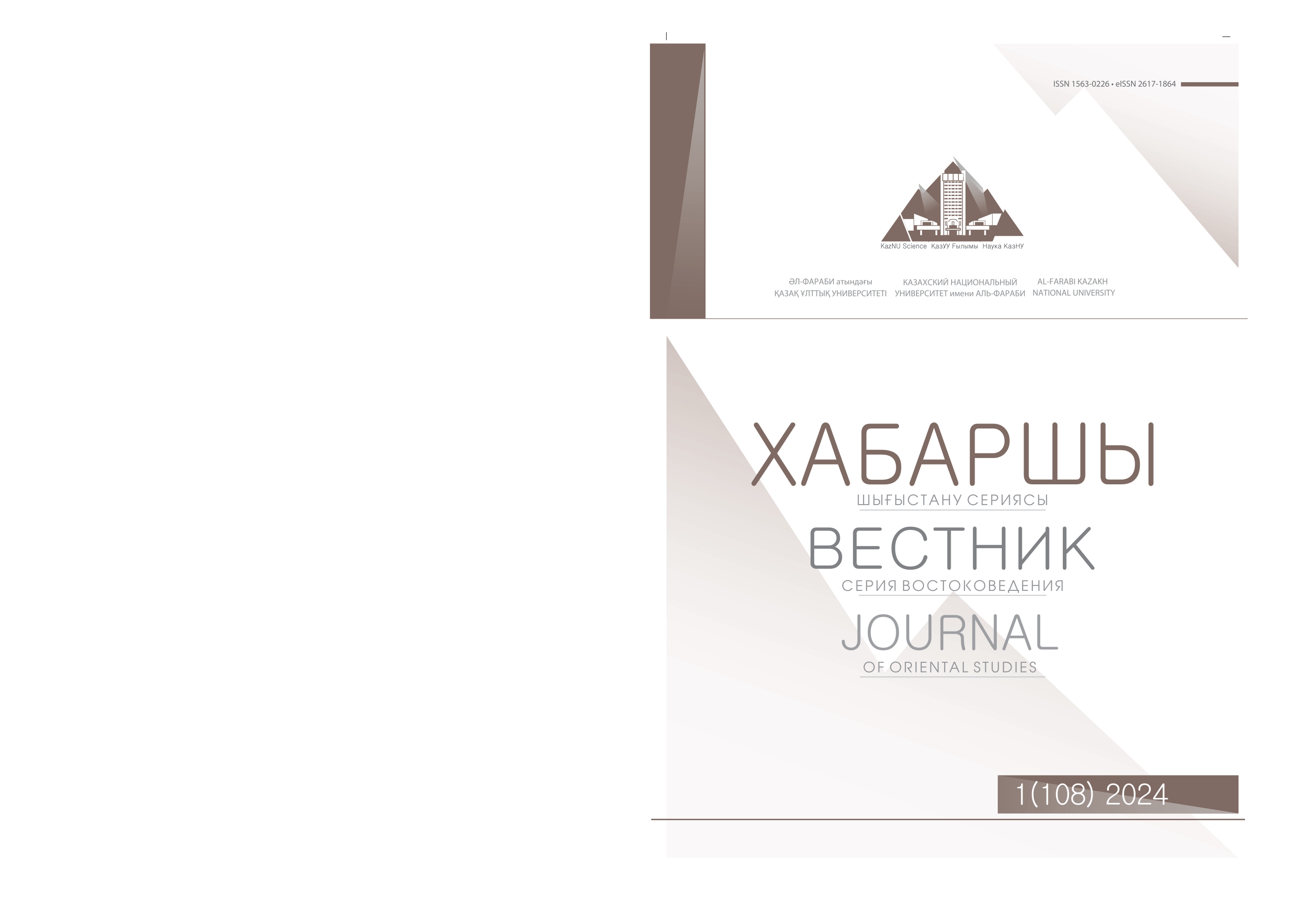Appeal to education in Kazakh and Turkish literary works (Examples of the works of Beimbet Maylin and Omer Saiffeddin)
DOI:
https://doi.org/10.26577/JOS.2024.v108.i1.010Abstract
The article examines the school-labor-educational appeal in the works of the Kazakh writer Beimbet Maylin and the Turkish writer Omer Saifeddine, who were engaged in writing during the period of general world changes and national conflicts at the beginning of the 20th century. be under consideration. Two poets, not indifferent to the suffering of their people, accompanied the pen for twenty years; the place and educational tones in the works of the Kazakh and Turkish narrative genres differ. Writers, who from the very beginning knew that education was the only factor influencing the development of their nation, have always accompanied enlightenment. The author, who is not opposed to modernity, creates a certain criterion in search of the compatibility of news useful for society with the “national identity” of the nation. Operating from this perspective, he adheres to a number of new style educational models and practices offered to the Turkish people, especially those promoted by the Committee of Union and Progress after 1908. A good observer and critic, Omer Seyfeddine, criticizes those models of social behavior that correspond to the national identity of the Turkish nation and are formed as a result of foreignness. Along with this criticism, he also expresses his own attitude towards education. The stories and prose of Beimbet Maylin and Omer Seyfeddin are discussed, and the basic elements of education in these genres are also considered, such as direct education and school, class, teacher, and the formation of an educational environment.
The first problem facing any nation is the problem of school. Education and schooling have shown how important public education is. These are educational institutions that teach language literacy and promote innovative ideas. The emergence of new Methodist schools. Centuries-old schools did not provide young people with the necessary worldly knowledge and skills. Therefore, new educational schools began to open. The history of the opening of these schools is described differently in different books. It is known that the work of individual people played a special role in the growth and development of any nation. The study of their spiritual relics and their moral deeds makes a great contribution to national revival and development.
Key words: Beimbet Maylin, Omer Seifeddin, literature, education, teaching, teaching methods,
illiteracy.














